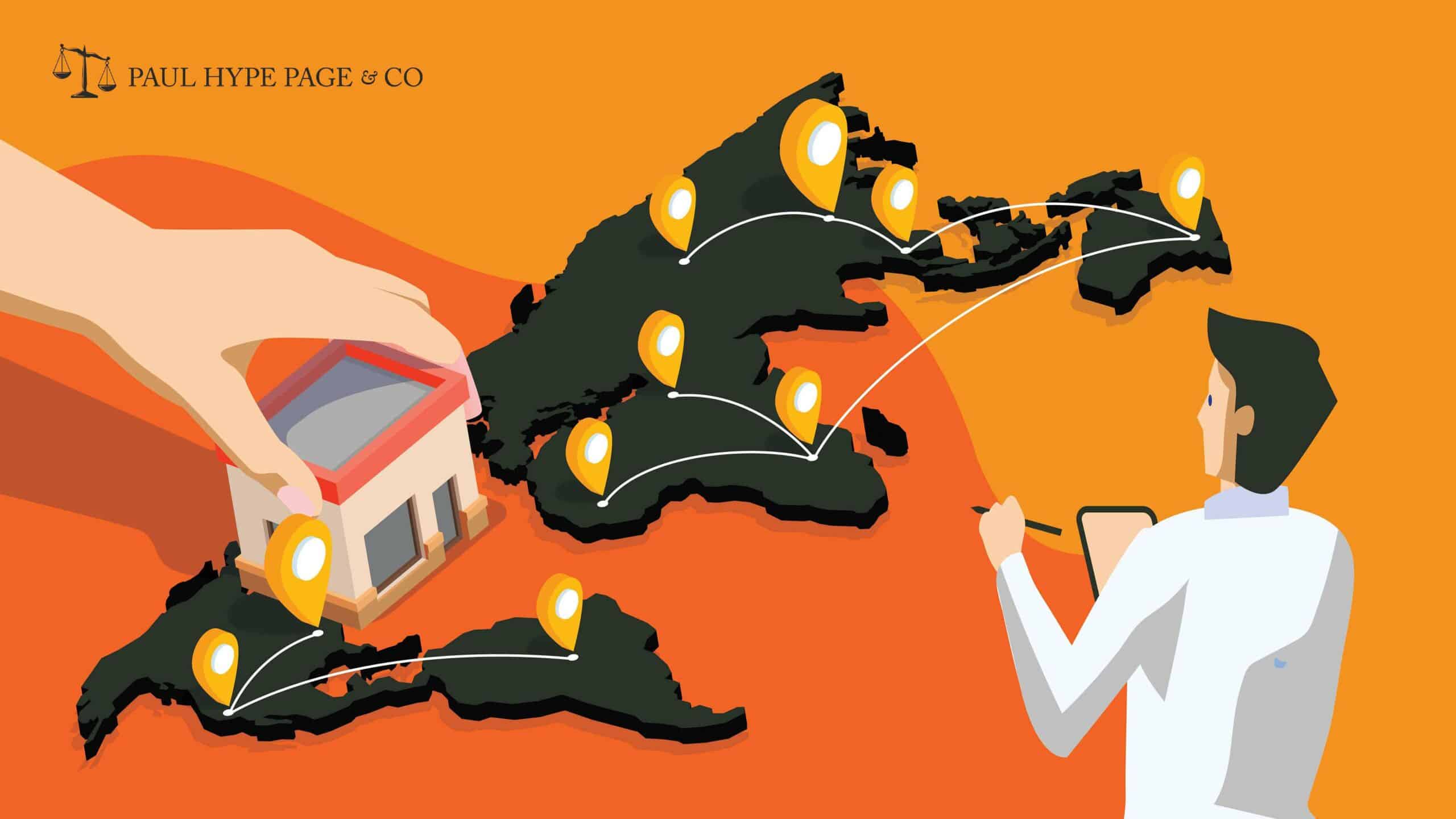Type of business structures are crucial for foreign companies looking to expand into Singapore. The Accounting and Corporate Regulatory Authority (ACRA) oversees company registration, financial reporting, and related matters. Business owners can choose from:
• Branch
• Subsidiary
• Representative Office
• Related Company
To start, let’s understand these four types.
What is a Branch?
A branch is an extension of a foreign head office that can perform the same business activities such as sales and contracts in Singapore.
It is not a separate legal entity, meaning the foreign parent company is fully liable for the branch’s operations and any liabilities incurred. While branches can operate in multiple countries, they remain legally and financially tied to the head office.
What is a Subsidiary?
A subsidiary is a private limited company incorporated in Singapore and usually majority-owned by a foreign parent company.
It is a distinct legal entity, which limits the parent’s liability to the amount of share capital subscribed. The parent company controls the subsidiary’s financial and operational policies but is not responsible for its debts beyond its investment in shares.
What is a Representative Office?
A Representative Office (RO) is a temporary setup without legal status in Singapore and is not allowed to engage in any profit-making activities.
It serves primarily as a liaison office to establish business contacts, conduct market research, or facilitate communications on behalf of the parent company. An RO is often the first step before launching full-scale business operations.
What is a Related Company?
A related company is a separate legal entity established in another country but owned by the same individual or group.
Both companies can operate independently while using the same brand and services. This structure provides flexibility to adjust ownership or operations in one company without affecting the other, commonly used by sole proprietors or groups expanding regionally.
Which Business Structure is Best for You?
After understanding the different types of business structures in Singapore, we can now take a closer look at the deciding factors:
- What is the liability impact?
- What is the tax implications?
- What is the commercial impact?
- Is the business structure easy to set up?
Here the factors consider for business structures
| Factors | Subsidiary | Representative office | Branch | Related Company |
| Suitable For | For local or Foreign Companies that wish to expand their operations in Singapore | For Foreign Companies that wish to set up temporary vehicle in Singapore to conduct research and act as liaison office | For Foreign Companies that wish to expand their operations in Singapore | Sole owners expanding their businesses overseas |
| Liability | Separate Legal Entity | Not Separate Legal Entity | Not Separate Legal Entity | Separate Legal Entity |
| Tax treatment | Taxed as Singapore resident entity, local tax benefits available. | Not applicable | Taxed as non-resident entity, local tax benefits not available. | Taxed as Singapore resident entity, local tax benefits available. |
| Tax benefits | A subsidiary company, with at least one individual shareholder with minimum of 10 percent shareholding, is entitled to local tax incentives and rebates | No Corporate tax. Employees have to pay personal tax | Partial tax exemption | Entitled to local tax incentives and rebates |
| Commercial Impact | Business parties might be less willing to work with RO as it is not a legal entity in Singapore. | |||
| Minimum Setting up Requirement | Min One shareholder, that can be an Individual or corporate (100% local or foreign shareholding allowed). Must have at least one resident director | Must appoint a Chief Representative who will relocate from headquarters | Must have two Singapore Resident Agents | Min One shareholder, that can be an Individual or corporate (100% local or foreign shareholding allowed). Must have at least one resident director |
With the above factors in mind, we are one step closer to our final decision on the company type for your business. Let us break it down for you:
1. Why choose a Branch?
- Administratively easier to maintain than a company.
- Easier to close than liquidating a company.
- Liabilities of a branch extend to its head office. Having a registered office in Singapore for a branch means that its head office (foreign corporation) can receive legal process in Singapore. Another disadvantage is that the head office must lodge its accounts with the ACRA, making them available for public inspection.
2. Why choose a Subsidiary?
- Benefit of several tax exemptions as it is considered as the local company. Further, it will not implicate the head office with legal or financial problem as it is considered as a legal entity.
- Required to be audit yearly and will increase the compliance cost.
3. Why choose a Representative Office?
- Less cost compared to other type of entity in Singapore.
- Legal status hence it cannot perform any sales activity and go to any contract signing.
4. Why choose a Related Company?
- More flexibility in making decisions in each jurisdiction as each entity operates separately
- Higher legal risk because owner’s name receives more exposure compared to if using a corporate vehicle with more layers
Conclusion
It is crucial to select the right business structures in Singapore as it significantly impacts operations and planning. If you find it challenging to pinpoint your specific needs or require tax planning advice, consider contacting Paul Hype Page. With offices across Southeast Asia and more than 2 decades’ worth of experience, we specialize in cross-border incorporation and planning. By outsourcing your needs to our Malaysia or Singapore incorporation services, it helps clients much like yourself with industry-specific knowledge and advice to start and grow your business.
- Sole Proprietorship/Partnership: Ideal for small businesses with low risk and minimal regulatory requirements. However, personal liability is a concern, and growth opportunities may be limited.
- Private Limited Company: Offers limited liability protection, separate legal entity status, and scalability for growth. It’s the most common and preferred choice for businesses looking to expand and attract investment.
- Branch Office: Suitable for foreign companies seeking to establish a presence in Singapore without forming a separate legal entity. While it allows for centralized control, it exposes the parent company to liabilities and regulatory requirements.
- Subsidiary Company: Provides limited liability protection while allowing for independence in management and operations. It’s favoured for its flexibility and insulation of risks from the parent company.
Consider factors such as liability protection, taxation, regulatory compliance, and growth potential when making your decision.
FAQs
A private limited company in Singapore offers limited liability protection, separate legal entity status, scalability for growth, access to government incentives, and ease of attracting investors.
The main business structures in Singapore include sole proprietorship, partnership, private limited company, branch office, subsidiary company, and representative office.
Singapore’s corporate tax rate has fallen dramatically over the past two decades. After peaking at 26%, the Singaporean government enacted many reductions to the corporate tax rate in the ensuing years. Today, Singapore’s corporate tax rates stands at just 17%.
Due to the unique characteristics of sole proprietorships and partnerships, IRAS does not consider them to be companies. Therefore, they are ineligible to receive any tax exemptions.
Ordinary business partnerships, limited partnerships, and limited liability partnerships differ in fundamental ways. The methods in which they are to be run contain significant differences. Therefore, these partnerships have to be classified separately.
About The Author
Share This Story, Choose Your Platform!
Related Business Articles







